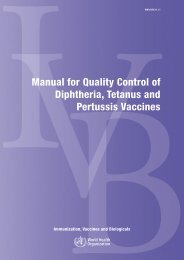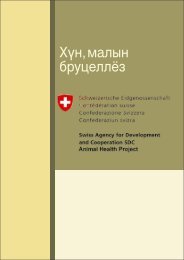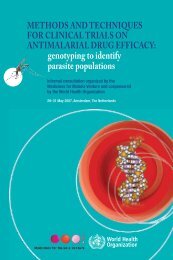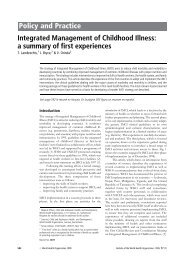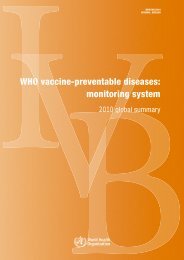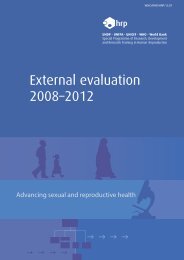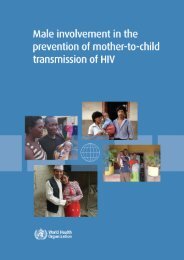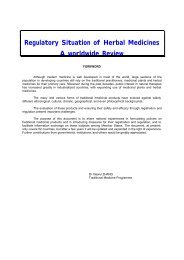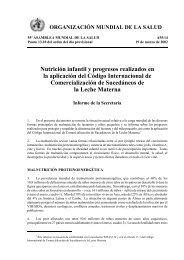IPDE - Extranet Systems - World Health Organization
IPDE - Extranet Systems - World Health Organization
IPDE - Extranet Systems - World Health Organization
You also want an ePaper? Increase the reach of your titles
YUMPU automatically turns print PDFs into web optimized ePapers that Google loves.
115 ICD-10 and DSM-IV<br />
ICD-10 and DSM-IV<br />
DSM-Ns was designed for use in the US and is primarily the product of<br />
American psychiatric opinion. ICD-1O6 is intended for use throughout<br />
the world and reflects the views and needs of the international psychiatric<br />
community. The two are different but overlapping classification<br />
systems. There are slight differences in nomenclature: anankasticlobsessive-compulsive,<br />
anxioudavoidant, and dissocial/antisocial. In ICD-10,<br />
borderline and impulsive are viewed as subtypes of emotionally unstable,<br />
schizotypal is located with schizophrenia and delusional disorders,<br />
and narcissistic is not included. There are also some differences in the<br />
criteria required for various diagnoses. The <strong>IPDE</strong> field trial demonstrated<br />
that there was sufficient disagreement regarding the cases identified<br />
as personality disorders in DSM-UI-R and ICD-10 to require the<br />
administration of the entire <strong>IPDE</strong> if one wished to make diagnoses in<br />
both systems.<br />
Translations of the <strong>IPDE</strong><br />
Investigators at the various centres involved in the field trial have translated<br />
the instrument into the following languages: Dutch, French,<br />
German, Hindi, Japanese, Kannada, Norwegian, Swahili, and Tamil.<br />
Translations have also been made into other languages, including<br />
Danish, Estonian. Greek, Italian, Russian, and Spanish. Additional translations<br />
are contemplated. The translations were backtranslated into<br />
English by a psychiatrist or psychologist who had not seen the original<br />
English version. Variations and problems in the back-translation were<br />
then reviewed with those who undertook the original translation, and<br />
corrections were made when indicated.<br />
Particular pmblems can arise when a semistructured interview like<br />
the <strong>IPDE</strong> is used with subjects who are illiterate and speak a regional<br />
or tribal dialect. Since written and spoken language are quite different<br />
in such populations, the interviewer must frequently depart fmm the<br />
literal text and improvise an equivalent question on the spot, in order<br />
to maintain communication with the subject. Although this is a<br />
potential source of error variance, the examiner's familiarity with<br />
the scope and meaning of the diagnostic criteria and with the intent of<br />
the original <strong>IPDE</strong> question, should keep such error within tolerable<br />
limits.




